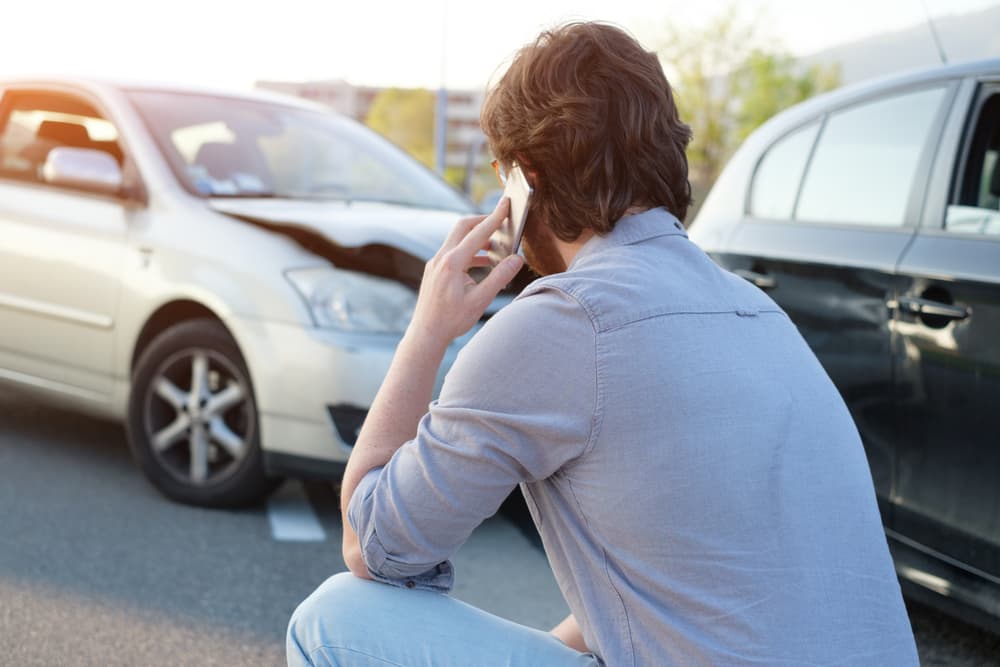The shock of a car accident can make it hard to think about what steps you must take in the hours, days, and weeks following a crash. You might become focused on your injuries and medical treatment and try to get back to work or your active life as quickly as possible. You may overlook critical details, potentially jeopardizing your legal options for pursuing compensation after a car crash.
If you have suffered injuries in a car accident, first, get the treatment you need for your injuries. Keep copies of all bills, invoices, and receipts to document your expenses. Gather your pay stubs or income records if you miss work or have reduced earnings while recovering from your injuries. Collect other documents and evidence from the accident, including your medical records and police accident reports.
Most importantly, speak to a car accident lawyer as soon as possible after a crash. An attorney can explain your legal options and protect your interests when dealing with insurance companies or the other driver’s legal counsel. Your lawyer can also help you to avoid jeopardizing your right to compensation. Finally, an attorney will also ensure the timely filing of your insurance and legal claims or lawsuits in your car accident case.
Read on to learn more about what you should do after suffering injuries in a car accident.

Steps to Take at a Car Accident Scene
Here is an overview of the steps to take at the scene of a car accident:
Check on Everyone Involved in the Crash
First, you should check yourself, your passengers, and the occupants of the other vehicle or vehicles for injuries. Call 911 if someone asks for medical assistance or appears distressed, unconscious, or seriously injured.
Get off the Road
Move your vehicle out of traffic if you can safely drive it. Leaving your car on the road means it will continue to pose a collision hazard for oncoming vehicles, putting you and others at risk of a second accident. If your vehicle has become disabled, carefully walk out of the traffic path, staying as far off the side of the road as possible. Make sure to activate your vehicle’s hazard lights, whether you can move your car off the road or need to leave it in the roadway.
Notify the Authorities
Call the local police department (or state police if the accident occurs on the highway) if no one has called 911. Only leave the accident scene if law enforcement arrives and an officer tells you you may go. If a responding officer asks for a statement, keep your answers brief. Do not exaggerate or speculate about what occurred in the crash. You can say, “I don’t remember,” if you cannot recall a detail. Do not try to blame the other driver for the collision.
Take Photos and Videos
Use your cell phone to take photos and videos of the accident scene if you can safely do so. Document details such as vehicle damage, skid marks and debris on the road, traffic signs/signals, weather/lighting/traffic conditions, the condition of the road surface, and any visible injuries you have sustained.
Exchange Information With the Other Driver or Drivers
Remember to exchange insurance, license, and vehicle registration information with the other driver or drivers involved in the accident. However, do not discuss details of the accident with other drivers and passengers, admit that you didn’t see the other vehicle, or offer an apology. While you may want to offer sympathy to the other driver, the insurance companies may use your statements to prove your fault for the crash.
Notify the Insurance Companies
You need to contact insurance companies in the days following the car accident. First, you should report the crash to your auto insurance company, even if you think the other driver caused the accident. Your insurance policy may require you to notify your insurer within a few days after an accident. If you provide your insurance company with untimely notice, you might jeopardize your eligibility for coverage, such as personal injury protection (PIP) coverage.
Contact the other driver’s insurer if you got their insurance information. The other driver may neglect or refuse to report the crash to their insurer, so you should ensure the other insurance company also has notice of the accident.
Although you may have a contractual duty under your insurance policy to cooperate with your auto insurance company, you should only provide a recorded or written statement about the accident once you consult a car accident attorney. While insurance adjusters often seem like they want to help you get compensation for your injuries, their efforts often focus on delaying, denying, or minimizing your claim to maximize the insurance company’s profits. Working with a lawyer is a good idea to fight back against tactics.
Seek Medical Attention
You should also see a doctor or go to the hospital promptly after the car accident, even if you don’t feel hurt. The shock of a car crash can cause an adrenaline rush that can mask pain and other symptoms of injuries for days or even weeks following the accident. However, promptly documenting and diagnosing your crash injuries can protect your rights to seek compensation for your medical bills and other losses.
By waiting to seek medical attention after a car accident, you can give the insurance company grounds to argue that your injuries involved a preexisting injury or medical condition or that another accident or trauma occurring after the car crash caused your injuries. Documenting your injuries as close in time to the accident as possible will help strengthen your argument that those injuries occurred in the collision.
You should follow your doctor’s treatment plan and instructions as closely as possible. Only put off recommended treatments or procedures to seek a second opinion. You may jeopardize your car accident claim by deferring treatment of your car accident injuries.
Putting off treatment may allow the insurance company to contend that you failed to mitigate your losses by not seeking prompt medical care. The insurer might argue that you let your injuries worsen without treatment, and thus you should not receive total compensation for the more expensive care you now need. Beyond preserving your right to total financial compensation, obtaining prompt medical treatment will give you the best prognosis and quickest recovery time.
Gather Documents and Information
As you treat your car accident injuries, you should also begin collecting documents and other information you might need for an insurance claim or car accident lawsuit. Work with your car accident lawyer to help structure your documentation.
Obtain your:
- Medical records and provider notes from the treatment of your car accident injuries
- Medical bills and invoices
- Car repair bills and records
- Receipts from car rentals or other alternative transportation costs during car repairs
- Pay stubs or tax returns, if you needed to take time off work during your recovery or had reduced income because of part-time or light-duty work
- Photos and videos you took at the accident scene
- Police accident reports
Keep a diary or journal during your recovery from your injuries. You can document pain, physical limitations, and changes to the quality of life you experience from your injuries and medical treatment. A diary or journal of your recovery experience may support your compensation claim for pain and suffering or other intangible losses you sustained due to your injuries.
A car accident lawyer can help you gather other critical evidence for your car accident claim, such as traffic/surveillance footage of the accident, drivers’ cell phone records, and opinion reports/testimony authored by accident reconstruction, traffic, and automotive engineering experts.
Contact a Car Accident Attorney
You should contact a car accident attorney as soon as possible following the crash. Obtaining prompt legal advice after a car accident may give you the full scope of legal options for compensation. Your lawyer can also begin investigating the accident and securing evidence and witness testimony before they become lost or memories fade.
A car accident attorney can also protect your interests by handling communications with insurance adjusters or debt collectors while you focus on your medical treatment. You can direct an insurance company or attorney to contact your car accident lawyer, giving you peace of mind while focusing on healing from your injuries.
Most car accident lawyers offer free initial consultations, which allow you to speak with multiple attorneys to find the best legal counsel for your case.
Avoid Legal Complications
You should take additional steps to avoid jeopardizing your legal rights and options in your car accident case. In addition to refraining from providing a recorded or written statement to the insurance company without consulting your lawyer, you should refrain from discussing the accident or your injuries with family members or friends, as the insurance company could subpoena them to testify about your statements.
You should also avoid posting about the accident, your injuries, or your legal claims on social media. Insurers sometimes monitor accident victims’ social media accounts for posts that contradict the victim’s official claims or that might undercut their credibility.
For example, if you post information on social media that conflicts with your account of the accident, the insurance company might use your post as evidence of your fault for the crash or to attack your credibility. Disparaging the other driver or the insurance company on social media may also adversely affect your credibility.
Finally, refrain from posting photos or videos of yourself on social media while undergoing treatment for your car accident injuries. Insurance companies may use posts that show you traveling or participating in physical activities to challenge claims that your injuries have prevented you from working or performing daily activities.
Set your social media profiles to the most private setting, and do not accept connection requests from anyone you don’t recognize to prevent insurance company investigators from having access to your profile contents. Don’t post anything on social media until your claim concludes.
Remember Claim Deadlines
You have limited time under state law to file a car accident lawsuit against an at-fault driver. Under Texas’s statute of limitations, you must file a car accident lawsuit within two years of a crash.
A defendant in a car accident case can file a motion to dismiss a lawsuit filed after the expiration of the statute of limitations. If the court dismisses your case, you could lose your right to pursue compensation in civil court. However, in limited circumstances, a court can pause the statute of limitations. A car accident attorney can review the facts of your case to advise you when you need to file a lawsuit in your case.
In addition to the statute of limitations, you may encounter additional deadlines if the car accident involves a state, county, or city vehicle. Under Texas’s Tort Claims Act, you must give notice of your car accident claim to the appropriate government agency within six months after a car accident. Failing to provide timely written notice of your car accident may cause you to lose your rights to seek compensation from the government for the crash.
Knowing What To Do After a Car Accident Can Help You Protect Your Legal Rights and Options for Financial Recovery

Drivers should familiarize themselves with the steps they must take after suffering injuries in a car accident. At the crash scene, you should check everyone’s well-being, ensure your and other motorists’ safety, report the accident to the authorities, and exchange insurance information with the other drivers.
Following a car accident, focus your efforts on seeking treatment for injuries sustained in the crash, gathering records and information for your car accident claim, and speaking to an attorney about your legal options. Finally, remember that state law imposes deadlines on filing car accident claims, which makes retaining a lawyer one of the most important steps you can take right after a motor vehicle collision.